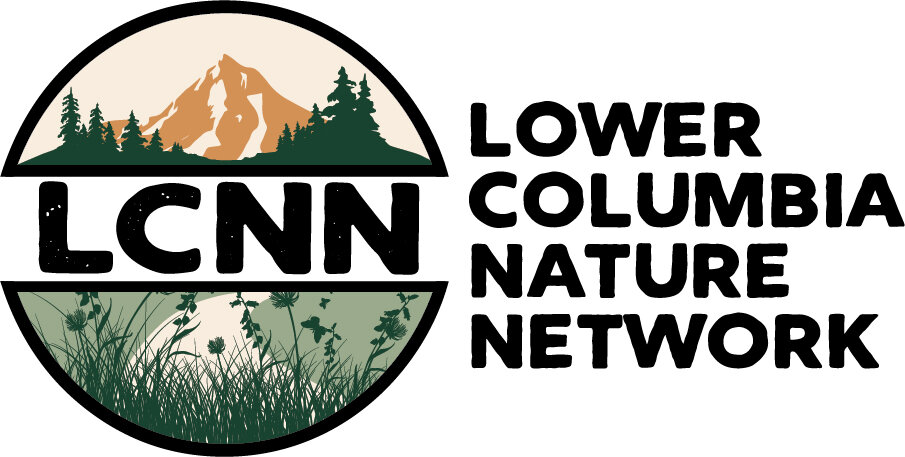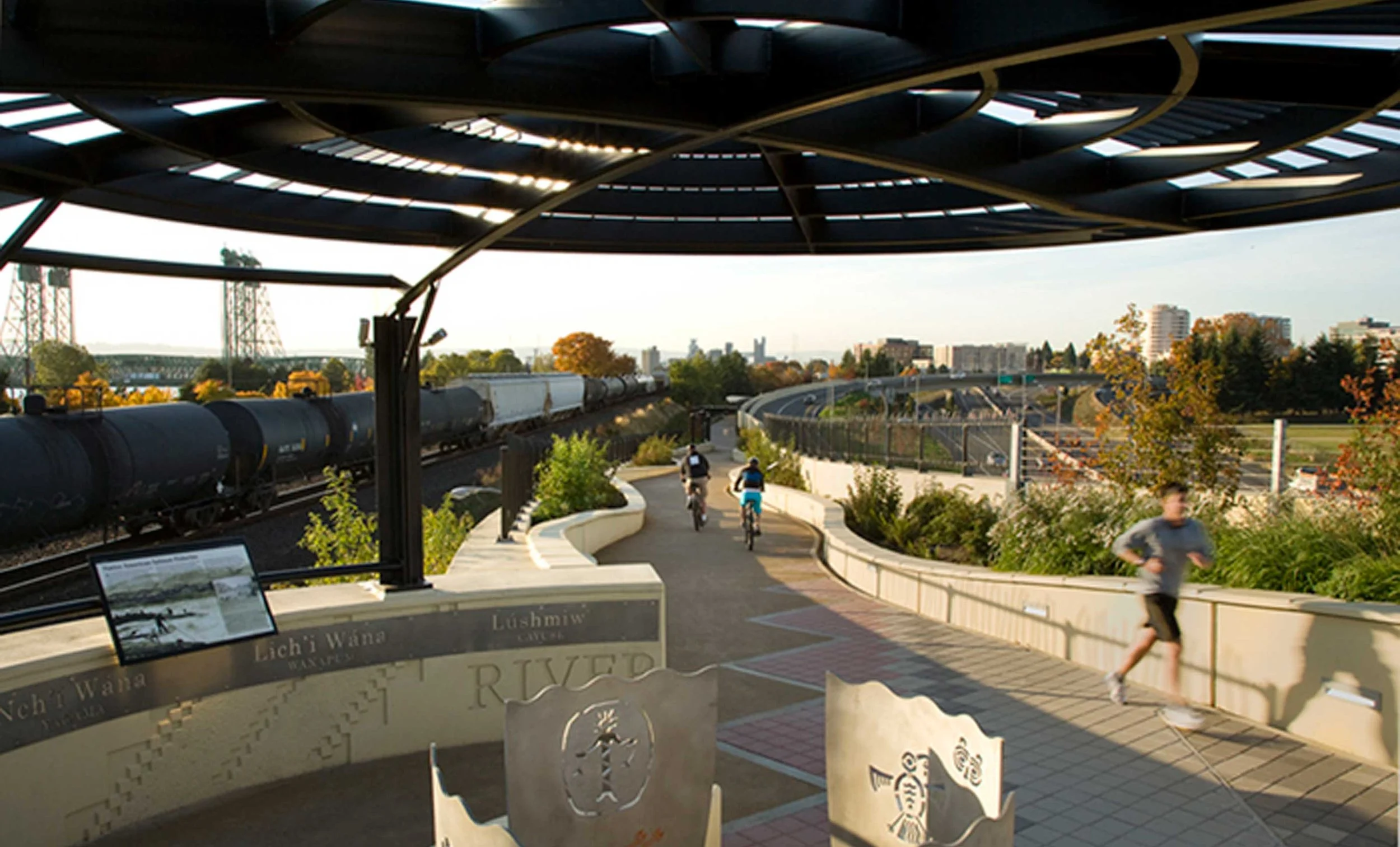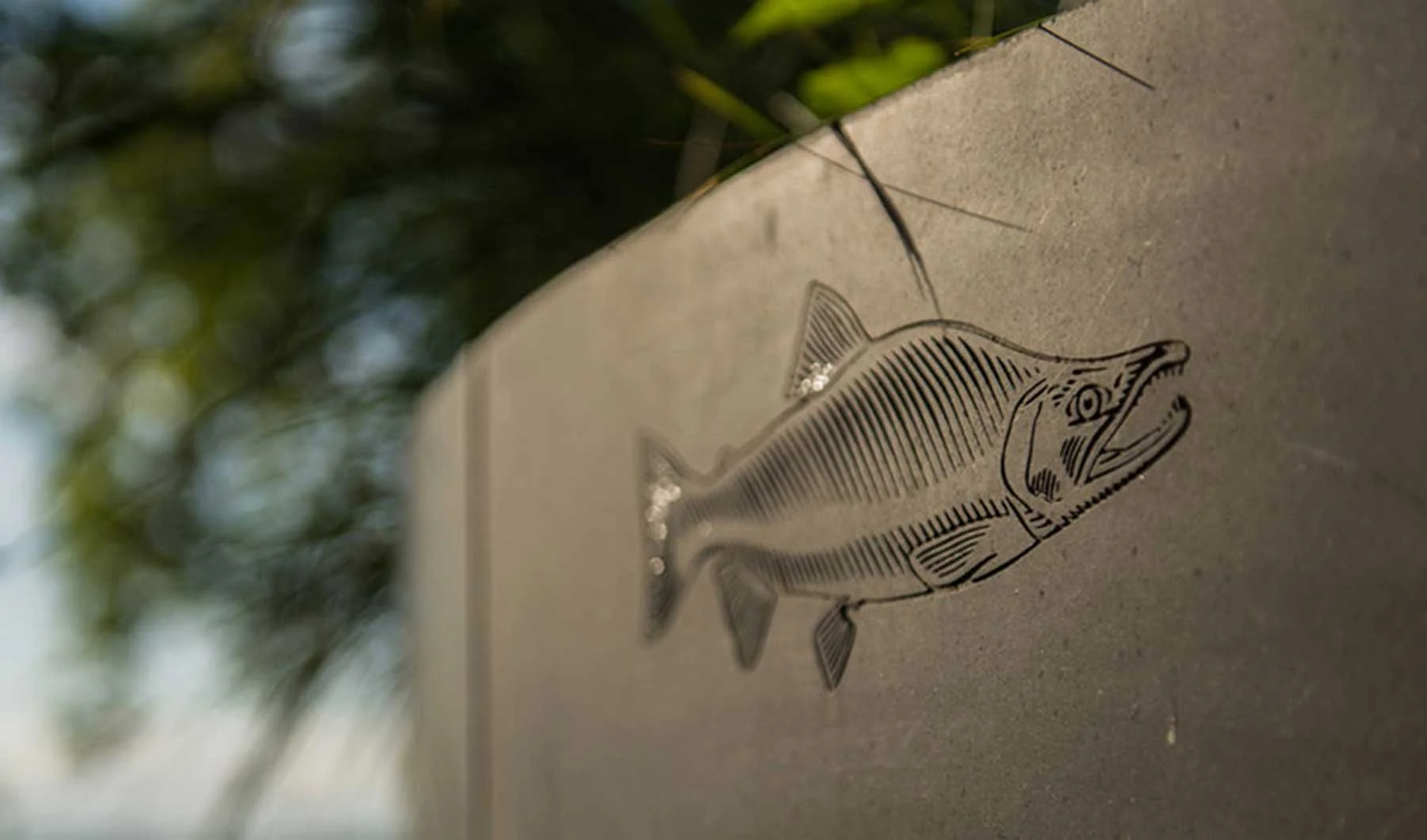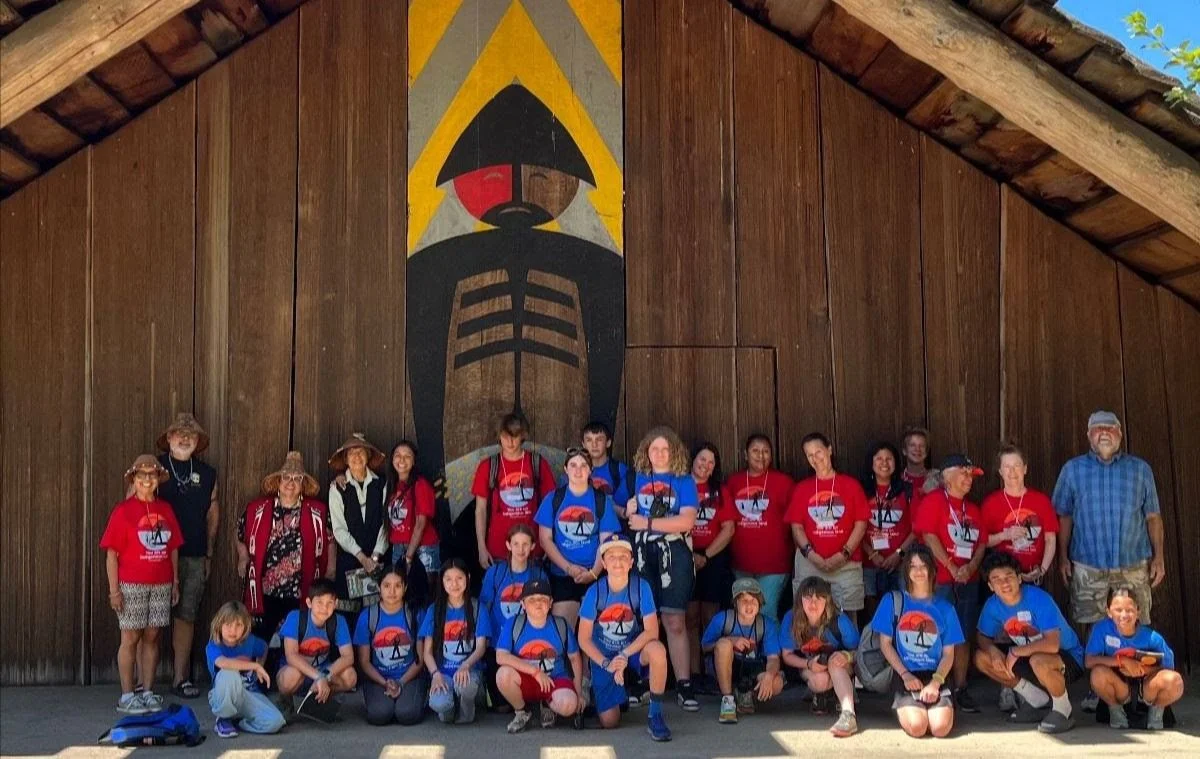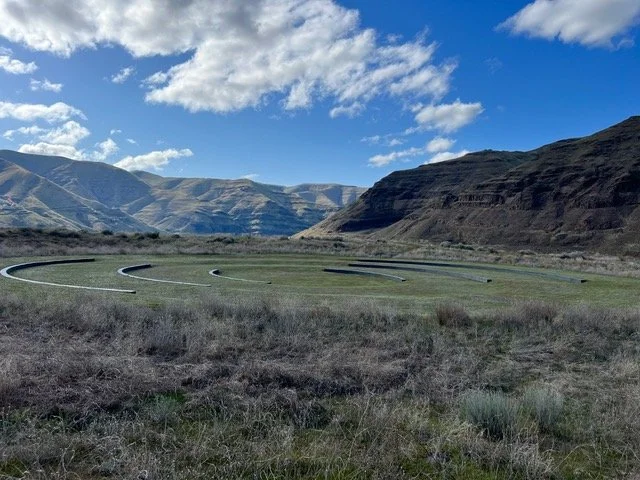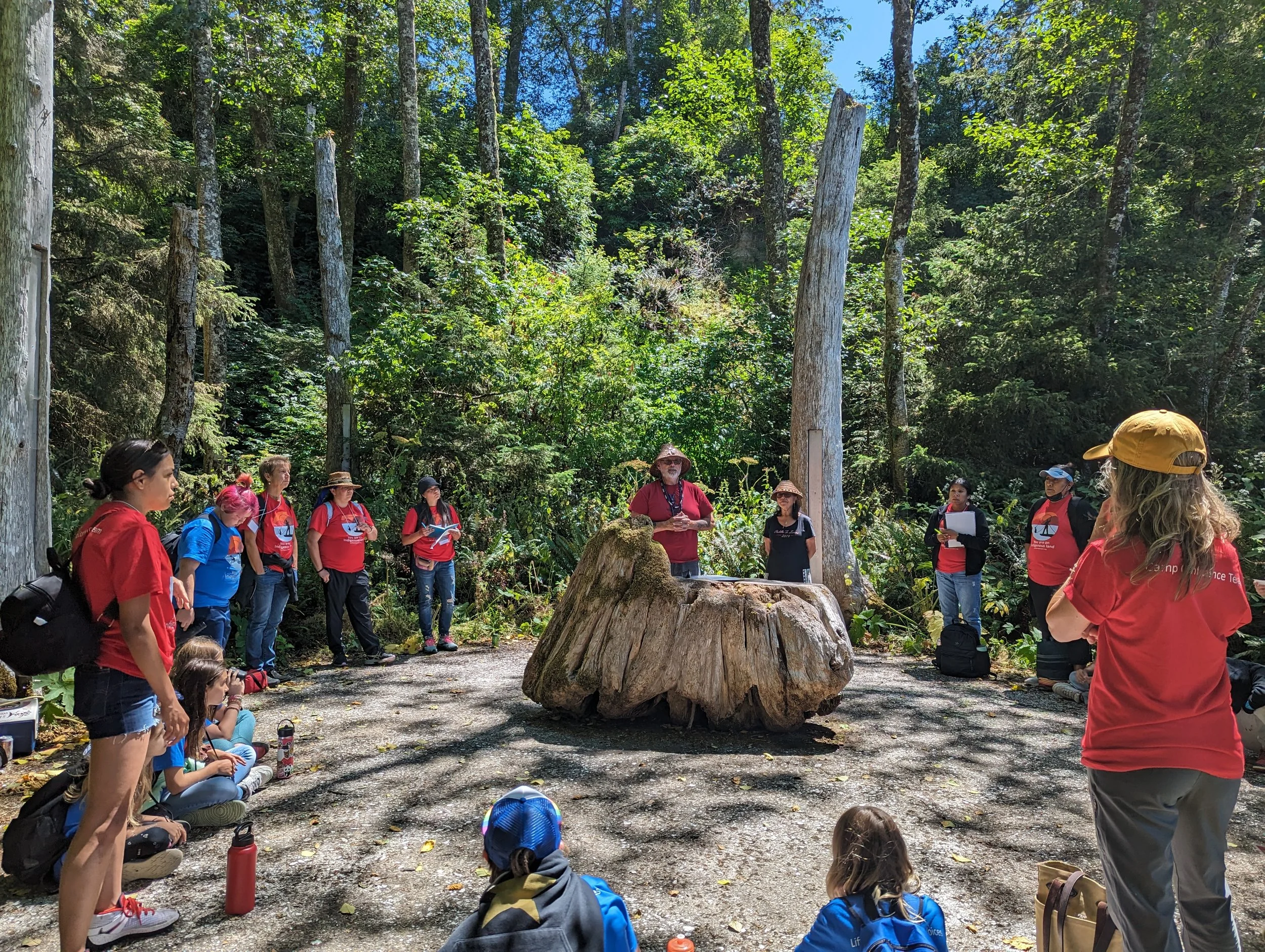Partner spotlight: Confluence
Listening. Elevating voices. Sharing the full story of the people who have lived here since time immemorial. Learning by listening to voices through story. These are just some the ways Confluence serves in our community.
Our August Lower Columbia Nature Network meeting featured Confluence, a Vancouver based group who connects people to the history, living cultures and ecology of the Columbia River system through indigenous voices. Colin Fogarty, executive director and Heather Gurko, education manager walked us through their history as an organization and where their mission stands today.
What began in 2002 as a way to elevate indigenous voices in the commemoration of the bicentennial of the Lewis & Clark Expedition, has taken many twists and turns along the way. Many may know Confluence from their many river sites across the region by renowned artist Maya Lin, including the Vancouver Land Bridge.
During our time together they shared the expanded vision of Confluence that has developed and how they can be a partner and resource to many in our region. One of their goals is to make it easier for native groups to share their stories and history. They are not affiliated with any tribes but have tribal members on their board. Here are some of the ways you can utilize their many resources.
Confluence in the Schools
Confluence Education Programs work together to plant seeds of knowledge for both students and educators, as they experience learning through a broader and more inclusive approach to history and contemporary Indigenous existence.
Confluence in the Classroom and Outdoors connects students and educators with Native Educators and Artists who work through Indigenous Knowledge Systems to provide opportunities to learn and grow connections to Native Peoples, places, and systems through Native voices.
Confluence Professional Development Cohorts provide workshop opportunities for educators to align with Indigenous curriculum, learn through Native voices, and strengthen understanding and skills alongside their peers.
The Confluence Learning Community works with educators who want to deepen their connections and relationships with Indigenous Knowledge Systems. This community will grow and share opportunities to cultivate learning alongside Native voices through workshops, peer sharing and mentorship, as well as ongoing growth opportunities with Native Educators and Artists.
Confluence in the Community
Story Gatherings
First-person storytelling has a unique power to deepen our understanding of the histories, cultures, and environment that surrounds us. Confluence Story Gatherings are welcoming forums that feature the stories of native elders, told in their own voices, as a way to explore the interconnectedness of people and places of the Columbia River system. The events will feature video or audio selections of first-person narratives, followed by a discussion led by a panel of native elders, leaders, and writers.
Road Trips
A Confluence Road Trip allows you to dig deeper into the storied landscape of the Columbia River. Time at sites of cultural and environmental significance with Indigenous speakers is a chance to hear first-person insights into Native culture and history. You will come away with a richer understanding of tribal sovereignty, cultures based on reciprocity, and the legacy of Native resilience. Confluence Road Trips are designed for educators, including classroom teachers, but anyone who is curious is welcome.
Partner Events
Confluence works with our partners to put on events such as work parties at the Vancouver Land Bridge, concerts by Hunter Noack at Cape Disappointment, and participate in events such as Heritage Days at the Sacajawea State Park.
Confluence Library
Their library offers a great place to start or deepen your learning and listening to indigenous voices.
Camp Confluence
This summer Confluence received a grant from the Washington Outdoor Learning Grant to fund Camp Confluence, a free day camp that featured a series of regional outdoor field trips with opportunities to learn from indigenous educators.
How to connect
Questions were asked about how we can work together. Colin and Heather welcome partnerships and directed those interested to reach out to Heather via email.
